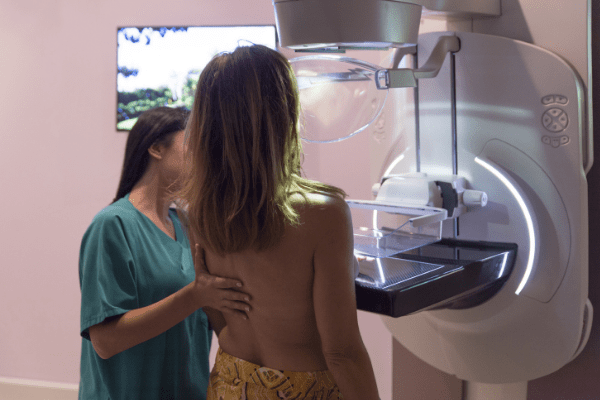Three Liberal Party MPs and a number of leading health professionals are seeking to revoke the NSW government’s plans to temporary close breast screening services across the state.
On Monday, BreastScreen NSW announced it would temporarily suspend all routine breast screening by Thursday to redistribute staff to manage the COVID-19 pandemic.
BreastScreen NSW stated that the temporary closures were due to “the increasing risk posed by the COVID-19 Delta strain, as well as significant cancellations and a need to redeploy staff to support the pandemic response.”
Sophie Cotsis, the Labor MP for Canterbury, has written to NSW Health Minister Brad Hazzard urging him to keep the screening services open.
Hazzard claimed that the suspension of the services was an exercise in weighing up the relative risks to patients and staff.
Cotsis, a breast cancer survivor, said on Twitter: “This great state of NSW should not be making decisions to put women at greater risk of death by suspending breast screen”.
In a letter to the Health Minister, she stated: “Closing breast screen clinics is appalling and is playing with women’s lives”.
“The risk of breast cancer is just as high irrespective of the pandemic and we need to have these essential services open.”
According to Cotsis, several women have reached out to her to explain they have had screening appointments rescheduled several times and were now waiting anxiously to be screened.
“As someone who has battled breast cancer and experienced intrusive treatment that was harrowing, I plead with the government to immediately reopen all of its breast screen clinics,” she said.
Gabrielle Upton, the NSW Liberal MP for Vaucluse and David Sharma, Federal Liberal MP for Wentworth have also composed a joint letter to Brad Hazzard encouraging him to review the BreastScreen NSW decision after they were contacted by constituents whose mammograms were cancelled.
“As you would be aware, regular screening and early detection for breast cancer are absolutely critical to effective treatment and markedly improve survival rates and quality of life,” the joint letter expressed.
“Whilst COVID-19 concerns are important, the decision of BreastScreen NSW to temporarily limit and close a number of services threatens to have a highly detrimental impact.”
“Mammograms will be postponed or delayed, and for some women this will mean their breast cancer is caught later than otherwise, impacting on both their survival rate and treatment options.”
NSW Police Minister David Elliott said he could not know why the decision was made to suspend screening.
“I can’t see how breast screening is any different to going to a GP,” he said. “I will be raising this with the Premier.
“Having lived through the trauma of it, I know how important the timing is to get an early diagnosis.”
In 2012, Elliott’s wife Nicole was successfully treated for breast cancer.
According to former director of BreastScreen NSW, Professor John Boyages, women were showing up with larger, and more advanced cancers in the past 18 months since the start of the pandemic.
Boyages, a radiation oncologist at Icon Cancer Centre, told the Sydney Morning Herald that the temporary closure of services is an “overreaction”.
“It is very important that we prioritise breast cancer which is one of the most common causes of cancer death in women and early detection is really important,” Boyages said.
“The BreastScreen environment is probably no different to every other radiology or GP practice that is open at the moment.”
Boyages urges anyone with a family history of breast cancer or who has a lump to see their GP “and not defer their appointments”.
Professor Fran Boyle, the president of the Clinical Oncology Society of Australia and a medical oncologist at the University of Sydney, believes access to routine breast screening services should be given to patients and health professionals who have both been vaccinated.
“In the middle of this year what we started to see was the women who didn’t go to BreastScreen last year because it was closed, presenting with larger cancers and a higher rate of lymph node involvement needing chemotherapy treatment,” she said.
“If we shut down BreastScreen again what we will find is that we will have another wave by Christmastime of people with delayed diagnosis.”
Brad Hazzard claimed that the health staff who “…make these operational decisions have determined that is in the interest of everybody at the present time, staff and patients.”
“I’ve made it very clear that as soon as possible I would like to see that [service] back,” he said.
“On behalf of the community I know we all want that back, but we also have a balancing act here and I think it is not up to ministers or anybody else to tell the health staff how to manage competing risks.”


